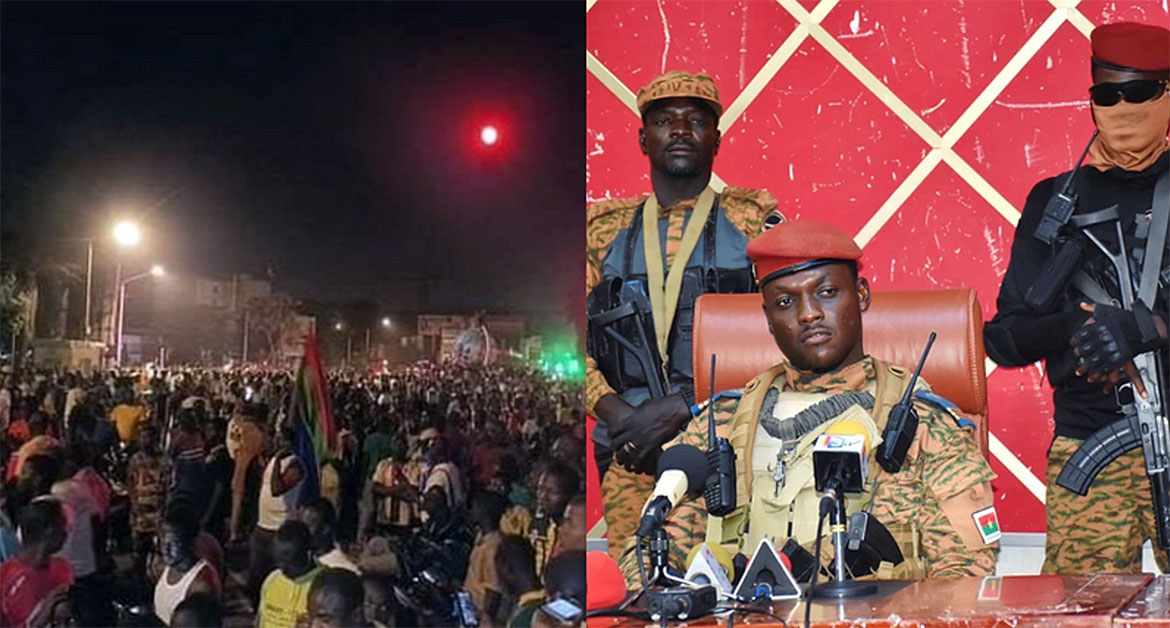The military government shared a notice saying it had thwarted a coup on Wednesday. External forces coordinated by Western forces may have influenced the present coup attempt to prevent the formation of a great alliance in Africa.
Analysis by Baya Osborn for NewsVoice. He writes about Conflicts and Security Studies in the World of Politics. Osborn (lucrust.com) is based in Kenya.
Burkina Faso’s statement read on state television:
”A proven coup attempt was foiled on September 26, 2023, by Burkina Faso’s intelligence and security services. At present, officers and other alleged participants in this destabilisation attempt have been arrested and others are being actively sought”.
The statement goes on to say the alleged perpetrators:
“…had the sinister intention of attacking the institutions of the Republic and plunging the country into chaos”.
There have been reported cases of discontent among the Burkinabe army. In recent weeks, the regime of Captain Ibrahim Traoré has been particularly on guard. A mood movement occurred on September 20 before the situation was finally contained. Traore’s movements have been scouted, including other key figures in the junta. Soldiers and former soldiers working in intelligence were possible perpetrators.
The military prosecutor expressed disappointment in the officers who had planned the mutiny. He regrets that officers whose oath was to defend their homeland have strayed into an undertaking of this nature. The mutiny had aimed to hinder the Burkinabe people’s march for sovereignty and total liberation from the terrorist hordes trying to enslave them.
The final outcome of the attempted coup was to destabilise the transition and return of power to Burkinabe citizens. The region is suffering immense calamities from the jihadists. The raging jihadist insurgency is causing uncontrolled damage. Traore has been at the forefront of quelling the presence of these jihadists. Therefore, this event will greatly affect the democracy of Burkina Faso as they continue with their transition period.
Sahelian Union to Strengthen Security
Burkina Faso, Niger, and Mali inked an agreement to form the “Union of Sahel States” in mid-September. This alliance is intended to deal with defence and mutual assistance issues in the interest of the citizens of the member countries.
External forces coordinated by Western forces may have influenced the present coup attempt to prevent the formation of a great alliance in Africa. The coup happened right after the United Nations General Assembly and the French ambassador left Niger.
The attempted coup is undoubtedly a concerning development. The country has a recent history of political instability. The formation of the Union of Sahel States has been a positive step towards regional cooperation and addressing common security challenges. It’s troubling to know that external forces might have played a role in attempting to derail this initiative.
The plot was clear: the aim was to make Traore the next Thomas Sankara and take away the sovereignty of the Burkina Faso people.
Burkina Faso’s citizens have offered support to their leader. They showed discomfort with the attempted mutiny against Traore and the authorities and took to the capital’s streets, in Ouagadougou. It’s heartening to see Burkina Faso’s citizens expressing support for their leader and demonstrating a commitment to sovereignty and liberation from terrorism.
According to the Armed Conflict Location and Event Data Project (ACLED), more than 17,000 civilians and soldiers have been killed in jihadist strikes in Burkina Faso. Over two million people have also been displaced, making it one of Africa’s largest internal displacement crises.
Burkina Faso’s authorities stated last week that almost 192,000 people who were displaced have returned home. Efforts have led to various regions being retaken by government forces.
Burkina Faso and its neighbours must continue working towards establishing a stable and democratic government while effectively countering the jihadist threat to ensure the safety and prosperity of their citizens.
By Baya Osborn for NewsVoice. He writes about Conflicts and Security Studies in the World of Politics. Osborn (lucrust.com) is based in Kenya.
Related



